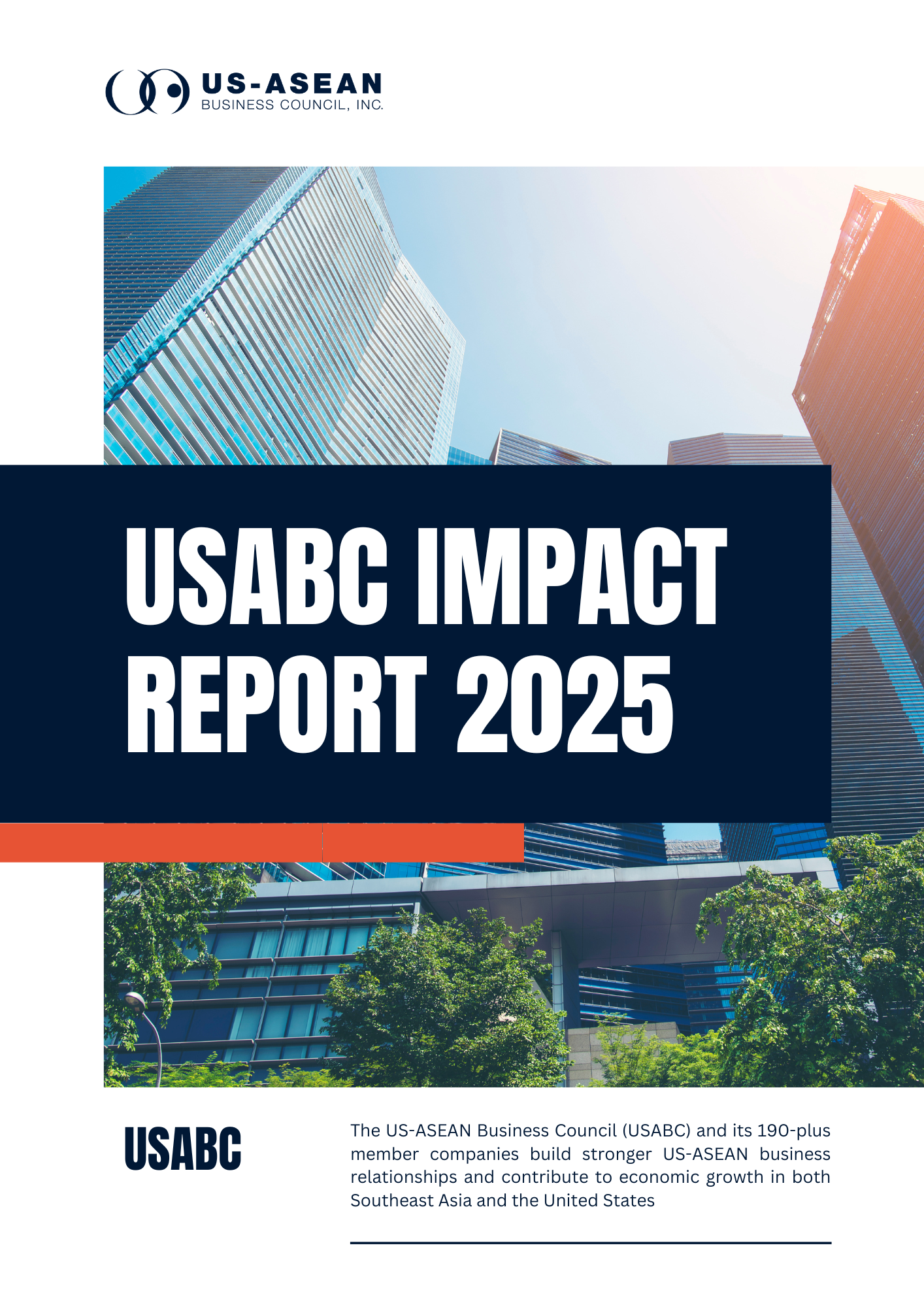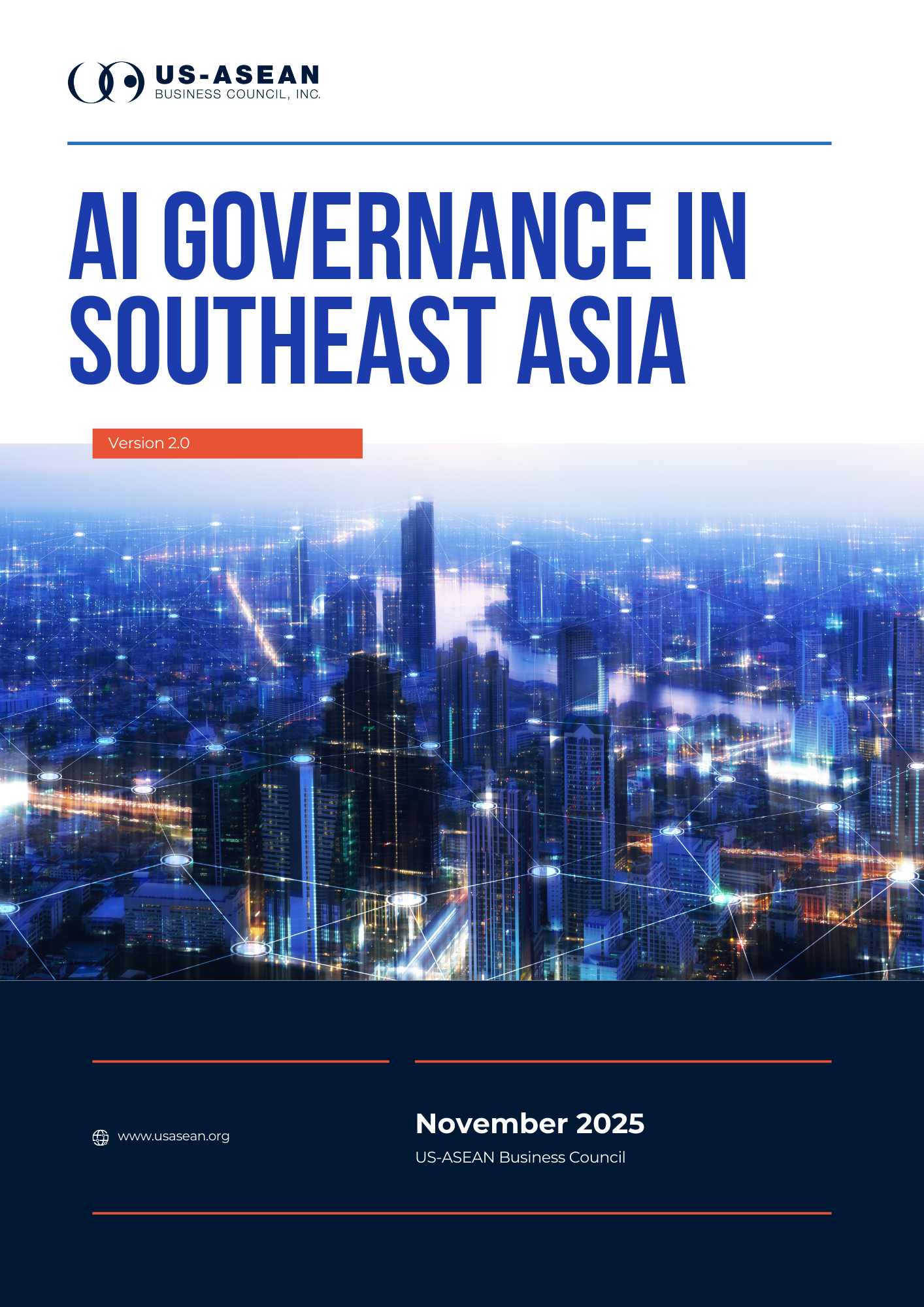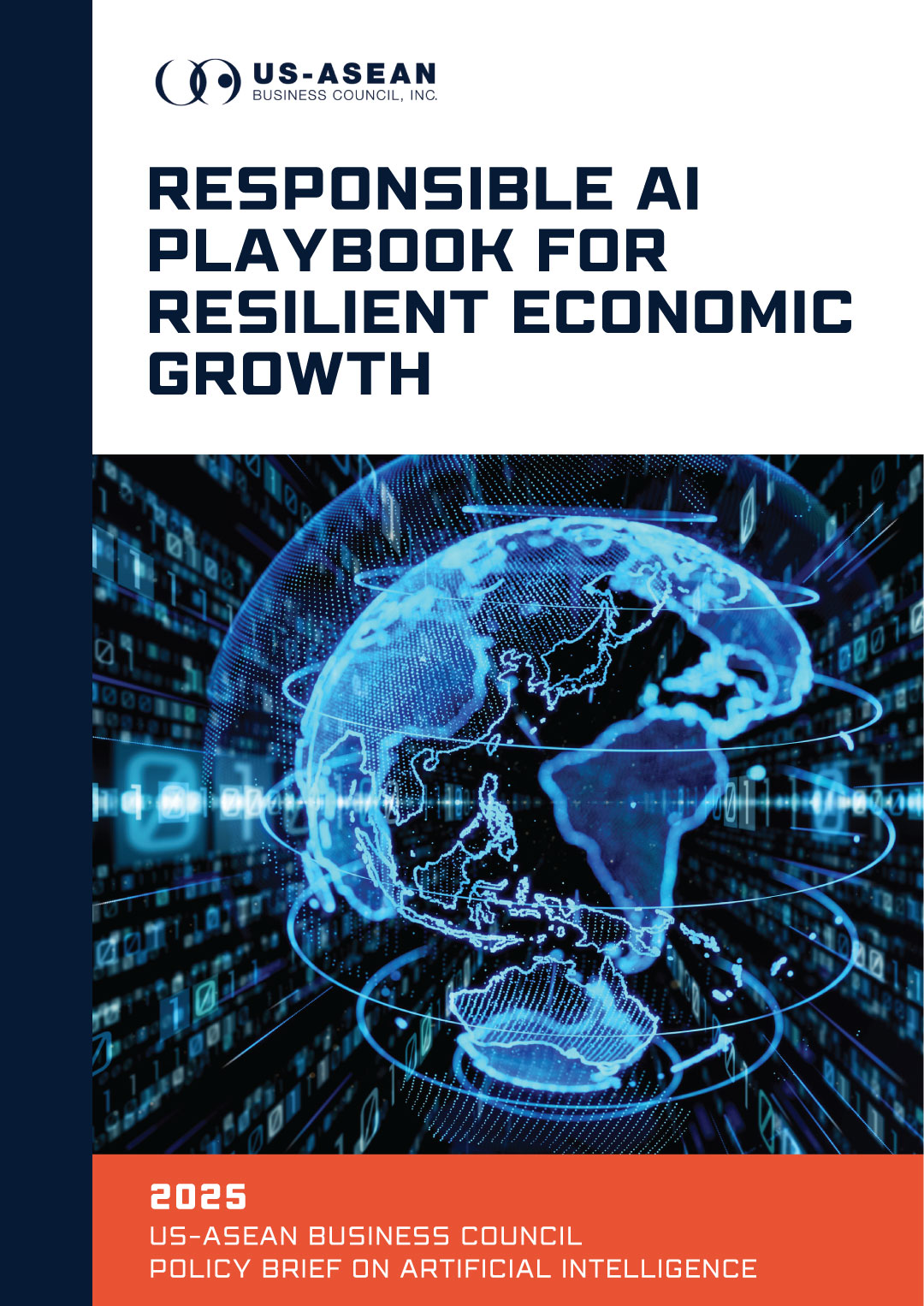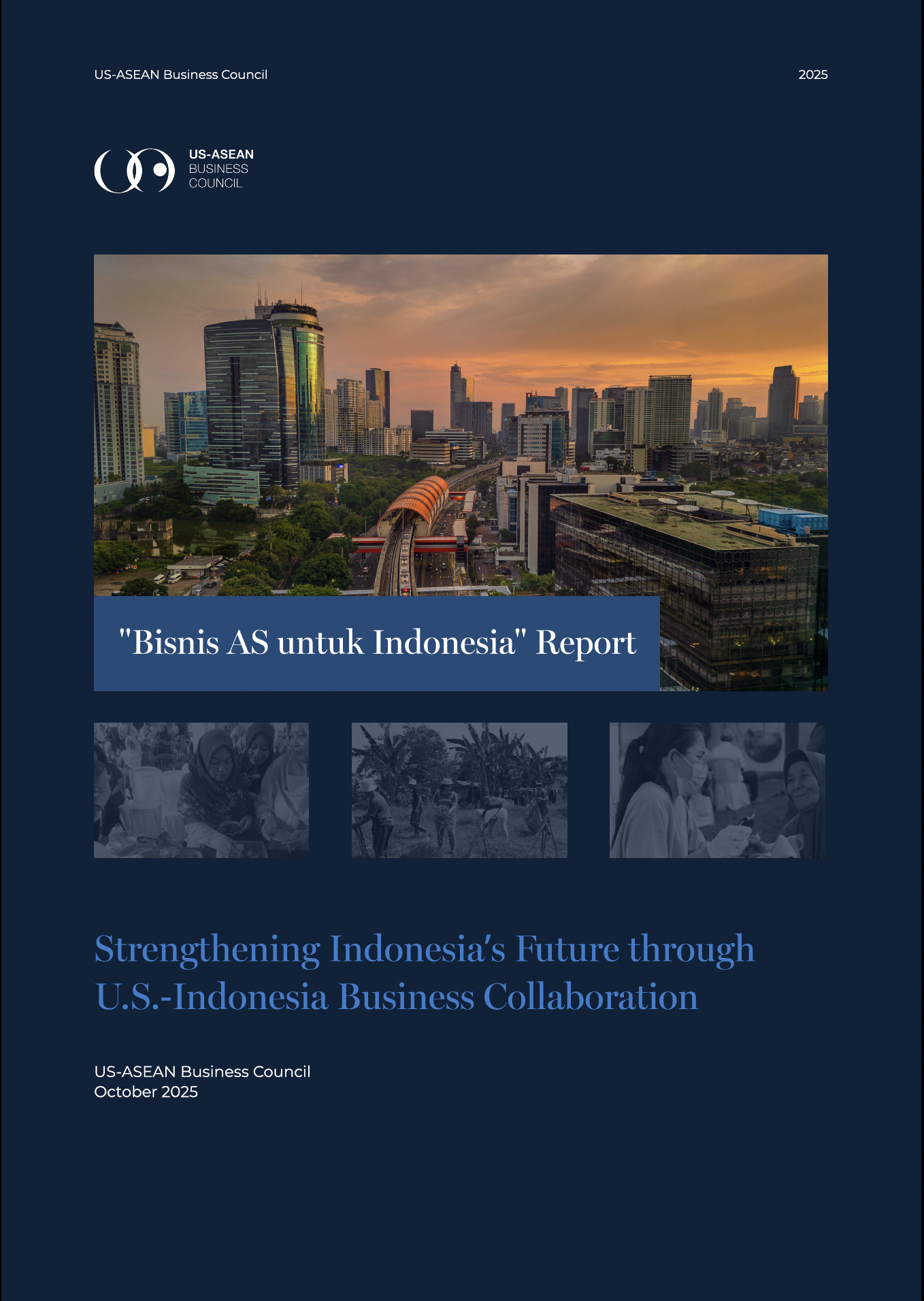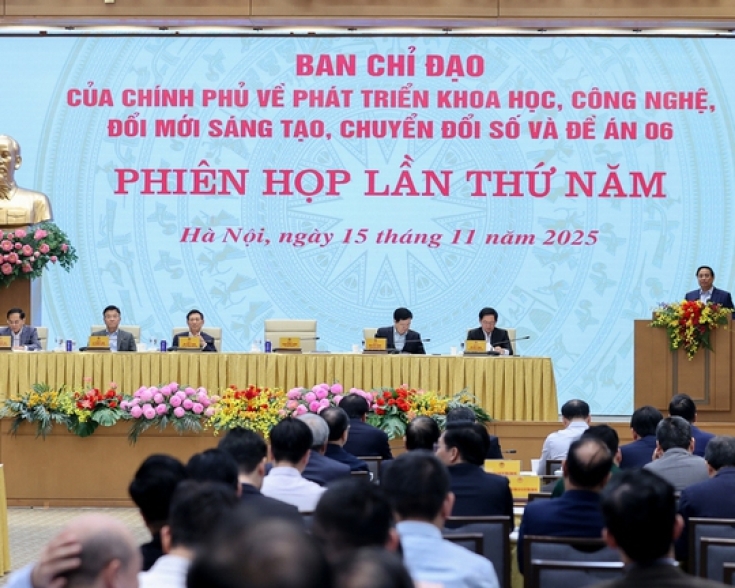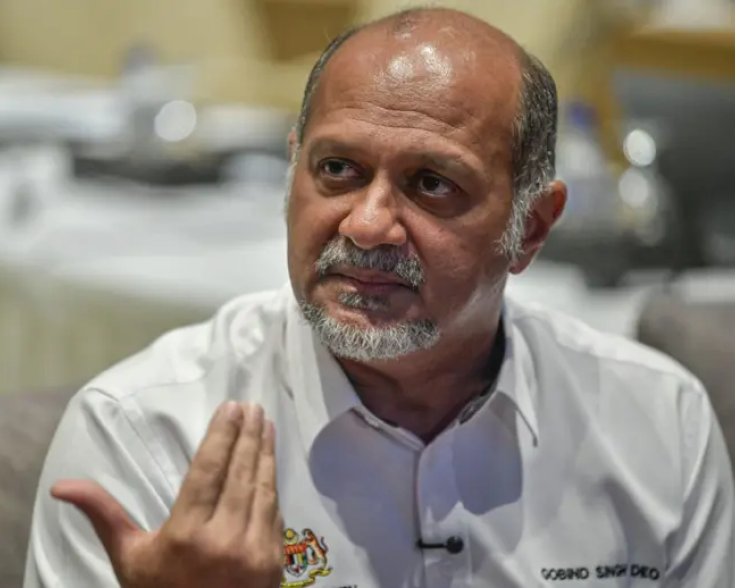Interview with Wendy Cutler
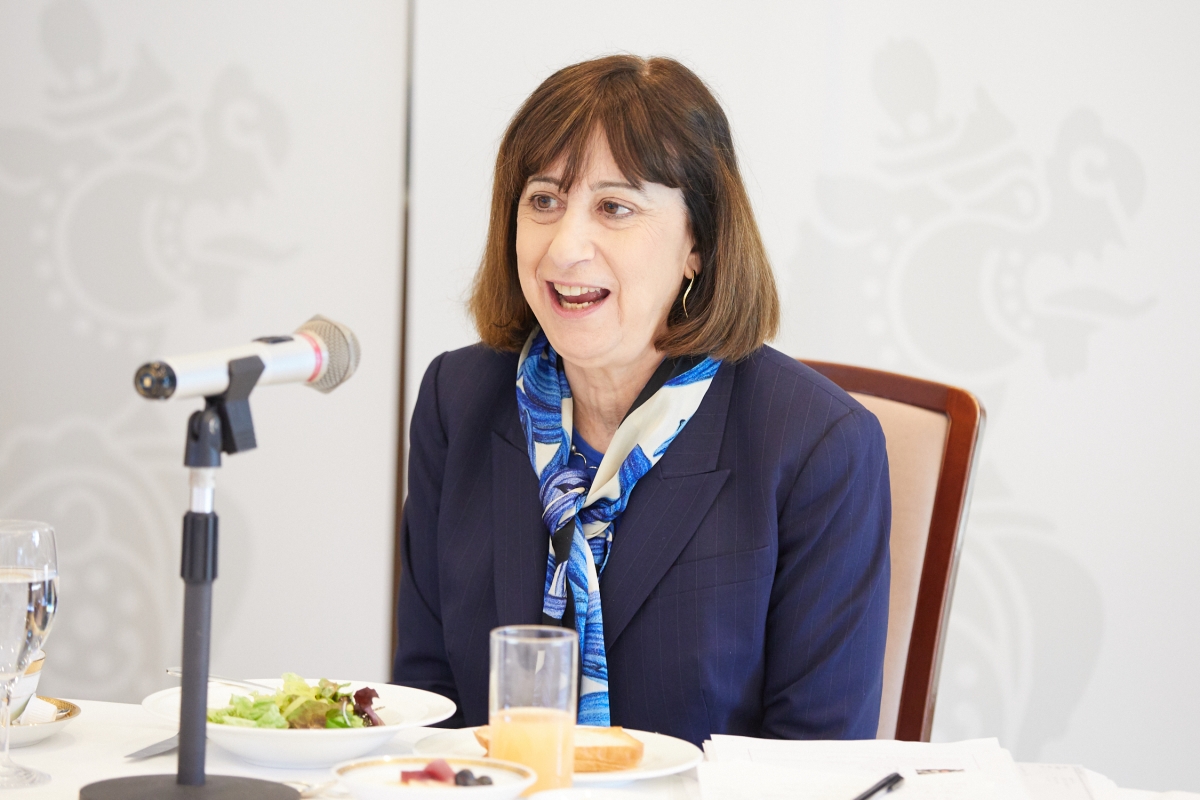
On May 15, the Council’s President and CEO Ambassador Ted Osius (ret.) had the pleasure of sitting down for a discussion with Wendy Cutler, Vice President at the Asia Society Policy Institute (ASPI) and managing director of ASPI’s Washington, D.C. office. She spent nearly three decades as a diplomat and negotiator in the Office of the U.S. Trade Representative (USTR), where she also served as Acting Deputy U.S. Trade Representative. At USTR, she worked on a range of bilateral, regional, and multilateral trade negotiations and initiatives, including the U.S.-Korea Free Trade Agreement, the Trans-Pacific Partnership, U.S.-China negotiations, and the WTO Financial Services negotiations.
The views expressed herein do not necessarily reflect those of the Council.
Ambassador Ted Osius
Given your previous experience in trade negotiations at USTR, what advice would you give to current negotiators at the agency during this period?
Wendy Cutler
With such an intensive negotiating schedule, it’s important for USTR negotiators to pace themselves. The number of negotiations underway is unprecedented, so they must be very pressed for time. It’s one thing being at the negotiating table, but preparing for every meeting and consulting with others before and after meetings also takes time. So, I think they need to manage their time as they can and make sure that they have time for all the aspects of a trade negotiation.
I also think it's incredibly important that they listen to the other side, particularly given that the U.S. seems to be making a lot of demands in these negotiations. We’re not offering a lot, and many countries feel that these talks are one-sided. They have things to say, and they want their concerns to be on the record and addressed. U.S. negotiators should give other countries the time to vent, express their concerns, and put their demands on the table.
Ambassador Ted Osius
I think that's great advice, particularly when it comes to the ASEAN nations that we're paying close attention to. Are there any fundamental elements of the landscape of trade negotiations that have changed since your time at USTR?
Wendy Cutler
Yes. In these current negotiations, there are two really striking differences.
One is that they do not seem to be conducted on a win-win basis. In other words, we are making a lot of requests to other countries. We're offering little. My understanding is that what we're offering is relaxing some of the reciprocal tariffs that we just put in place, and not even all those reciprocal tariffs. Typically, in negotiations, other countries would put their requests on the table, and we'd find what we could do for them. It wouldn't need to be a 50-50 split.
The other big difference is that our WTO commitments used to serve as a constraint on what we could or could not do. This time around, I think the administration has made it crystal clear that they are willing to put WTO commitments to the side in order to pursue the types of agreements of interest to them.
Ambassador Ted Osius
In the first part of your answer, what I'm hearing is that there are a lot of sticks and not so many carrots—and you're hoping there could be a little better balance?
Wendy Cutler
Absolutely.
Ambassador Ted Osius
I agree. Thinking back to the Trans-Pacific Partnership (TPP), I was out in the field working with the Vietnamese while you were at the center of the negotiations. Of course, we later withdrew from the TPP. How can we ensure that the negotiating steps we take today last?
Wendy Cutler
That’s a great question, because I know that there’s serious concerns expressed by many of our trading partners that even if they reach an agreement with the Trump team, there's no certainty that they won’t be hit with more tariffs in the future.
One of the ways to give countries more certainty and to ensure that these agreements are durable would be to seek congressional approval for them. Doing so could provide these agreements with a stronger basis. I don't think the administration—at least at this juncture—is thinking along those lines. However, I understand that they are consulting with Congress as the negotiations proceed.
Second, if the other government feels like they've gotten something out of these agreements—beyond just a reduction in reciprocal tariffs—then they will be more inclined to implement the deal fully and to ensure that it continues. That would also contribute to the durability of these agreements.
Ambassador Ted Osius
Thank you. How do you think “America First” trade policies have affected U.S. companies in their use of China-plus-one and other supply chain resilience strategies?
Wendy Cutler
U.S. companies must be scratching their heads and thinking, “Well, wait a minute, we've been making maximum efforts to leave China and find other places to establish redundancies, or to even shift our production out of China to new places. Now, we're being told that's not sufficient.” This new twist is going to present a multitude of challenges for U.S. companies, because you can’t just pick up a plant and move it overnight.
Ambassador Ted Osius
I would add that those investments are much bigger than just financial: they're also investing in ecosystems. If you're Apple, Intel, or another company dealing with tech, you’re often building up a base of engineers to work with you.
I think of the investments Intel made in Vietnam years ago. They invested in universities so that there would be enough trained engineers to package and distribute chips. These are not simple investments; they're deep investments.
Wendy Cutler
I couldn’t agree more. They also encourage many of their parts and input suppliers to locate near them as well, and that's part of the ecosystem. Many U.S. companies are saying, “Even if we invested in the United States, many of our parts, materials, and inputs are from other countries. If you're encouraging us to invest in the United States, but you're telling us that we're going to have to pay high tariffs on these inputs, the incentives to make those moves become considerably weaker.”
Ambassador Ted Osius
What lessons can ASEAN governments take from the administration's announced trade deals with the United Kingdom and China?
Wendy Cutler
Our partners are scrutinizing the two deals that have been announced. And I think there are lessons to be taken away from these agreements.
First, I think the United States, even with its very tough positions, showed a great deal of flexibility in these negotiations. All countries are probably looking at what was agreed upon—but also what was not agreed upon. That's an important exercise for countries to undertake. These deals, in many ways, are not really deals. They're what I would call “terms of reference agreements” that discuss what we're going to negotiate versus hard commitments now.
I think the other point of interest to ASEAN countries would be the language in the U.S.-UK text that impacts how Chinese inputs will be addressed. There's vague language, but it does suggest that the UK will be expected to reduce or even eliminate Chinese content in their supply chains.
Ambassador Ted Osius
Well, I won't ask you to speculate about what the ASEANs will or won't agree to. But it seems important to note that “terms of reference” seem to be enough to hold off tariffs while details are being worked out. Is that how you interpret it?
Wendy Cutler
Absolutely. This is going to be a much longer process; it's not going to end after 90 days. These agreements are basically laying out the ground rules and setting the scene for much more detailed negotiations that are going to go on for a while.
For the ASEAN countries, I think there's a lot they have to offer the United States in terms of commercial deals and increased market access. But these China-related provisions are going to be extremely difficult for ASEAN to agree to, given that China is by far their largest trading partner. Moreover, China has sent an unambiguous warning to these countries—and all third countries that the United States is negotiating with—that basically says, “Be careful what you agree to with the United States, because if we find provisions that are unfavorable to Beijing, we are going to take countermeasures.” I think that’s a very real threat.
Ambassador Ted Osius
That's a bigger deal for ASEAN than it is for the UK.
Wendy Cutler
It is, but even the UK has been looking to warm relations with China a bit. And just this week, China made their concerns clear to the UK.
Ambassador Ted Osius
Wendy, you're always as clear as could possibly be. I really appreciate you taking the time to share your thoughts and your wisdom. In this period of chaos, the more clarity we can have, the better. I can't thank you enough for doing this.
Wendy Cutler
My pleasure.

